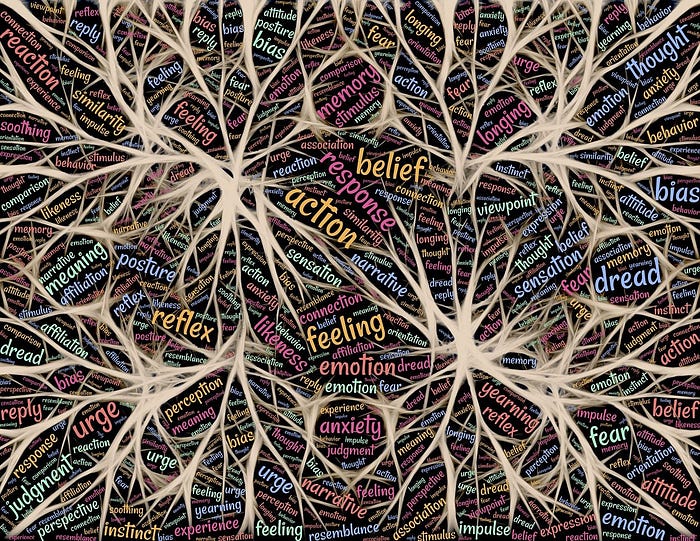Why I Added #Svalien to the Nonmonetized Together Title
You can also read this article at https://medium.com/non-monetized-together/why-i-added-svalien-to-the-nonmonetized-together-title-7d7fe230f4ac.
Update: I no longer use the term #svalien to describe this, I use the term “the context that isn’t limited in the same way as the political context.”
Definition of #Svalien
It’s a marker I invented to let everyone know that you don’t need to be constrained by politics when you’re on Nonmonetized Together. The community operates in a social context where you can be free from the limitations that your political role imposes upon you. Other activists are encouraged to make their own #svalien online communities to help restore a sense of hope among viewers.
Why, though?
I’m giving you the opportunity to get away with behaviours that would otherwise be viewed as politically self-destructive. This is one of the strategies I use to keep Nonmonetized Together a place with minimal influence from the outside world’s current unequal power structure. In this article, I’ll start by giving five reasons why #svalien spaces could be valuable and useful. Then, I will explain my strategies for achieving those goals and answer some other questions you may have about #svalien.
Reason 1: So you can work to achieve the same political goal with fewer sacrificial lambs
Politics is all about strategically allocating limited resources to achieve political goals. For a government to invest more in achieving a certain goal, they have to cut funding for other areas of society. Or when the government is changing laws, there are a limited number of people these laws can appeal to. Because of these restrictions, all political ideologies have sacrificial lambs — segments of the population who lose out from these ideologies gaining power.
Sacrificial lambs are a necessary but unfortunate component in society. The best you can do to lessen the consequences of sacrificial lambs is to tell the lambs not to take the politics personally. Not only does this interpretation make things easier for everybody but it’s also more accurate — sacrificial lambs are a natural consequence of the democratic system, merely unlucky enough to be on the losing side of society. Yet promoting this reality will be problematic in the real world because of the aforementioned limited resources that political sides compete over. Personal attacks allow political interests to use their resources more efficiently.
This reality extends to most of the Internet, despite the fact that the Internet allows you to send public messages without needing to consider as many risk factors as would the government. But social media is also used as a tool by politicians, organizations, and influencers to extend their political reach, and of course their online messages have to be consistent with the messages they communicate in other formats. This means that the power dynamics of the offline world are replicated onto the online world. To change these norms concerning sacrificial lambs, there needs to be an online place that isolates itself from these power interests, and that’s what Nonmonetized Together promises to achieve.
You can use Nonmonetized Together to support your political orientation’s sacrificial lambs while attacking them outside of Nonmonetized Together. This would not be hypocritical because success through Nonmonetized Together means following different rules than the rules for achieving political success. For once and for all, I’m giving you the chance to interact with sacrificial lambs without feeling threatened by them. This may allow you to learn new things about them. If enough of these interactions occur, we might be able to reduce the fallout caused by political upheaval … by a tiny amount, at least.
Reason 2: So you don’t have to group people in categories they don’t belong
Politics only thrives when it places people in broad categories. “Family values” can mean many different things, but when it becomes politicised as “pro-family values,” it typically only means one thing. Same thing with LGBT+ rights and “pro-LGBT+ rights” organizations. Liberal, conservative, and leftist are also broad categories, and a political party will usually identify with one of those three options instead of the subcategories that more accurately reflect people’s beliefs. This way, a political party can get 50% of the votes despite taking firm policy stances on ten different controversial issues.
Categorization benefits politicians because it encourages conformity, even when group members don’t feel like they completely belong. Categorization also allows politicians to pretend that they speak for an entire demographic of people — something that’s good for their public image but obviously untrue. There are variations in every group. For example, on his campaign website, Donald Trump aligns his interests with that of law enforcement, military veterans, and those who feel censored. Joe Biden doesn’t yet have a section on his campaign website where he highlights his plan, but in his recent tweets, he claims he is on same side as immigrants from Muslim countries, those struggling with student debt, and Tribal communities. But what about people in law enforcement who are struggling with student debt, or tribe members who feel censored?
Before Nonmonetized Together, these people would struggle to have their perspectives heard and would be given less support by society. If that sounds like you, your lived experience can now get some recognition from a community centred on finding solutions, inspiration, and knowledge. Another thing is that on Nonmonetized Together, there’s not that dynamic I mentioned earlier about needing to hold on to your resources, so you don’t have much to lose by acknowledging underserved populations on Nonmonetized Together. Compare that to the outside world where it’s usually less risky to pretend that reality is simpler than it is.
Reason 3: So people can feel comfortable sharing subversive views with the community
Some viewpoints, such as socialism or transformative anti-colonialism, don’t sit well with those in power, because they require people to let go of things they have developed a strong attachment to, and because they deal with concepts that are very uncomfortable to address. Because these beliefs are a tough sell to politicians, they are not well-suited to the “rules of the game” of politics. Many people who have subversive views have to tone them down to something more mainstream whenever they participate in the political sphere. Otherwise, they go nowhere.
I try to make Nonmonetized Together a place where people can feel comfortable sharing these ideas, but only if they want to. Really what I’m aiming for is a respectful community with diverse views. By making sure this blog avoids dominant power relations, I can remove the need for Nonmonetized Together users to appease people in power.
Reason 4: So people can present and interpret counterarguments as something to benefit from
It’s problematic to view the personal as political because then you will interact with people like a politician. An example of this is on social media, where counterarguments are used — and generally interpreted — as something that someone deploys to boost their own ego. Politicians behave this way because it’s part of their job, but this is not a socially responsible way for other people to behave. On Nonmonetized Together, I’m trying to create an alternative culture where counterarguments are instead used to benefit the person they are directed to.
Reason 5: So you can have a non-political discussion about oft-politicized topics *Does not apply to Nonmonetized Together*
I’m not saying that it’s a bad thing for ordinary people to be politically conscious, but sometimes those discussions are not what you’re looking for. Sometimes you just want to talk about transgender people, vaccinations, or an at-war country from a completely innocuous perspective. Now, I don’t think Nonmonetized Together is the right place for that, but I suppose this could be an idea for other #svalien online spaces.
How should I refer to this publication in everyday communication?
This publication should still be referred to as Nonmonetized Together in everyday communication. The hashtag is supposed to be kind of like a verification symbol. I actually wanted to put it in the description but there wasn’t enough space except in the publication’s “notes from the editor.”
Does the word svalien mean anything?
No, I just find it catchy, coming from an English-speaking perspective. It’s just the word “alien” with the rarely-used letter combination “sv” added to it. Same reason why the Nonmonetized Together logo consists only of the colour pink. It’s simple and recognizable.
Strategies I will use to achieve this
If you have any other strategies or any ways of improving this list, please let me know!
· Correct people who use this platform incorrectly. When a commenter uses a tactic that is more appropriate for competitive politics than Nonmonetized Together, I will tell them about Nonmonetized Together’s social context and how it affects their tactic. I will mention their tactic and their goal by name, and say that while their tactic may be suitable for their goal in most social contexts, the tactic would not help them achieve their goal on Nonmonetized Together, and that different strategies may be more useful. If this situation ever happens, being polite will be crucial because I will have to convey to the commenter that I wasn’t expecting them to understand everything about Nonmonetized Together. In fact, the only methods I have for keeping readers updated about Nonmonetized Together are either to answer people’s questions about it, or to respond to comments that get something wrong about Nonmonetized Together.
· Swearing off competitive politics. In 2020, I decided that everybody would be better off if I wasn’t competitively political, so I trained my mind to approach politics differently. Three years later, I’m no longer interested in competing for my political self-interest. I would rather enjoy my life for what it is and give you opportunities for achievement. I also find Christianity more satisfying than competitive politics. Competitive politics and Christianity are like two sides of the same coin. They’re both value systems but are complete opposites otherwise. Competitive politics is all about competition, power, and ego while Christianity is supposed to be about co-operation, wisdom, and humility (there are a lot of people who appropriate religion for competitive political purposes though, but the two are supposed to be separate). So right now, religion is a big goal for me, not competitive politics. Even though most of my articles are not overtly religious, I feel like I’m doing a service to God by presenting a collaborative space that functions as an alternative to competitive politics. That, instead of political competition, is what motivates me and gives me meaning in my life.
· Holding individuals accountable, not groups. This means that when I can, I should describe people in my articles as individuals, not as a member of a group. Depending on what’s appropriate for the situation, I can refer to them by username, real name, fake name, or no name at all, but not as an anonymous member of a group. I should refer to them like I do in this article. With the grown-ups in charge assigning blame to entire groups of people, it’s all too easy to forget that these groups aren’t identical clones of each other. Nonmonetized Together is here to resist this practice and describe people as people. I think presenting stories this way can help people view issues as they are without delving into identity politics. This might also make it easier for the people in these articles to come across Nonmonetized Together’s post on them, which would probably result in a significant positive influence on the issue that was being written about.
· Opening new avenues of thought in the comment section. If someone ever hijacks this community and uses it to fuel the political machine, I can respond to their comments not by discussing the same things everybody else has been arguing in circles about, but by making comments that open the very mental faculties they are trying to close. Since the person I’m talking with would technically be an Internet troll, I wouldn’t be too bothered if I don’t convince them of anything — I would mainly be writing for the readers, not for the trolls. The goal is to prevent readers from getting caught up in unproductive forms of political thought.
· Implementing commenter’s suggestions. Nonmonetized Together isn’t my blog, it’s our blog. If you have any suggestions for Nonmonetized Together, let me know in the comment section so I can implement them. By making it easy to share your suggestions with me, this can help make the hunger of power irrelevant within the community. I haven’t had any suggestions yet (other than one deleted comment), but I will implement your suggestions as long as they are practical and they achieve their purpose. If I don’t think your suggestion will work, I won’t put it in place, but I will respond to your comment and tell you why.
· Researching claims that commenters make. Distributing misinformation can result in gaining huge political power. If I can’t verify user’s claims, I’ll ask them for verification. Until I get some sort of confirmation from the commenter, I will put a warning in the article so the readers are aware that the claims are unverified. An example of this would be my discussion with Turi Sue in the comment section for this article.
· Trying not to write articles from a position of authority. I want the author-reader power dynamic to be equal. In this article, I use the words “might” and “may” to indicate that the suggestions could possibly work, not that they would probably work. The article also gives the reader opportunities to decide for themselves what’s best for them. For example, at one point, I write, “This may not be the best idea, so I hope people who read this article can collaborate so they can make a better one.” I also ask, “Do you have any ideas for techniques to research information outside of AI’s influence?” I have noticed I’m not always great at sounding nonauthoritative in my writing, but that’s something I can improve on.
· Not monetizing the articles. This will bring the focus back to knowledge production, not money production. Trading knowledge for knowledge is more equal than trading money for knowledge.
· Not giving claps. Sometime maybe a few months ago, I decided I will no longer give claps to comments and posts on Nonmonetized Together articles. Other readers can, but as the creator of Nonmonetized Together, it could be a conflict of interest if I clapped. (edit: I now give claps to articles but not individual comments because I want to boost some conversations but give everybody an equal chance to be visible when participating in them)
· Being patient with the commenters. I give them as many chances as they need to explain themselves clearly. I can also start comments with something like, “let me know if I understand correctly.”

· Targeting my responses toward all readers. Even when it seems like I’m responding to one person, I have to remember that there could be other people reading the response. I try to consider how this comment could be useful to them and inspire them to come up with ideas for positive change.
· Not using weaponized trigger words.
· Using straightforward language to avoid unnecessary conflict.
· Free speech with consequences. Yes, people have the legal right to behave unfairly, but that also means that I have the legal right to behave fairly by undoing the damage they caused. There are a few ways I can do this. The simplest option is to warn others about a user’s unacceptable behaviour. There is also the option of not responding to the harmful comments directly, but by responding to the comment as if it was undamaging, whether that be by jumping through obvious mental hoops or by slightly changing the comment’s wording. Yet unlike much of the “political” Internet, this isn’t to cause damage or create drama, but to treat the community fairly. Like I said, I can’t stop everybody online from being an unfair person (restricting their speech doesn’t change anything), but I can reduce the damage by being fair.
· Instead of telling someone their argument is wrong, telling them what is missing from their argument. People spend so much time complaining about the other political side but very little time figuring out how the opposition could be a better version of itself. This is because promoting encouragement is not compatible with the competitive political field. Yet on Nonmonetized Together, it’s normalized to help others develop their arguments, so now everyone can benefit from political discourse. Instead of burning society to the ground, you can phrase your argument in a way that appeals to them.
· Keeping track of unsolved community issues and what needs to be done for them to be solved. This way, I can focus on making sure this community delivers on its mission.
· Allowing anyone an opportunity for redemption, but only if they write an apology piece. For them to be redeemed, this piece MUST show that they understand why their actions are wrong. It also MUST list a specific plan for what they will do in the future for them to not cause the same problems. When people don’t give others a chance to redeem themselves, they are no longer fighting for a cause, they are fighting against others. I don’t want Nonmonetized Together to be a place to attack people. I want it to be a place to attack problems in society.
· Only block users from the community if their behaviour is getting out-of-control. For example if users are actually causing people to feel unsafe or if there is a large-scale trolling attempt. Nonmonetized Together is supposed to be a place to actually find solutions to problems in the world. This sometimes requires some of the ugly parts of society to be shown. But, it does not require sickos to take over the community spreading fear and trauma.
· Not using “mentally ill” as an excuse to shut people down. Also, making sure other people here are not doing so. This article explains how I will create a culture where “mentally ill” refers only to is original meaning.
· Being careful where I work. I cannot work at a job that is too political or else I may be coerced into removing its #svalien context. If readers ever find where I work, I want them to feel comfortable with the knowledge so that it won’t create a conflict of interest.
· Only existing on certain websites. Nonmonetized Together is not appropriate for members-only websites because I want anybody to be able to access them. It also has to be on a website where I can create my own environment, so nothing like X or Facebook where all public posts are all tossed together in a “for you” page. What I mean by this is a website where you have to click on an article to read it and it will appear on a new page. This could help keep Nonmonetized Together safe from people who don’t want anything to do with us. And finally, it has to be in a long-form format so people don’t feel the need to distort the truth by condensing it. That being said, you’re free to make your own #svalien community on other websites. I’m just saying there are good reasons Nonmonetized Together is only on Medium and write.as.
· Pointing out the positives of comments that are completely wrong. Even if they’re so wrong that you think, “that person has no hope.” Well, by finding a strength to their comment, I can at least provide some direction in their life. If I only mention everything negative about their posts without saying something good, maybe it will alienate them from Nonmonetized Together, as well as further society, and will cause them to degrade in weirdo onlone echo chambers. If I mention positives, Nonmonetized Together can be the place that breaks this feedback loop. Also, when I point out positive aspects to bad comments, it lets other people know that I’m open to what they say and that I’m not just dismissing whatever they say. This would let people know that all they need to do is fix up their comment.
· Apologizing if a user is giving someone a hard time and reiterating the troublesome comment in a nicer way. Hopefully, this can help kill the toxic discussion and turn the conversation into something valuable for readers and participants.
 Image from
Image from 














